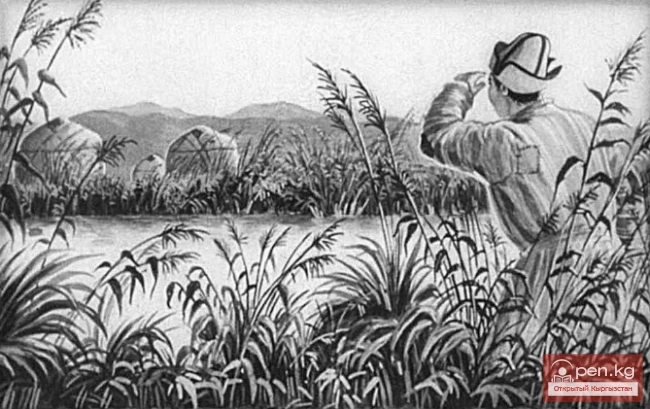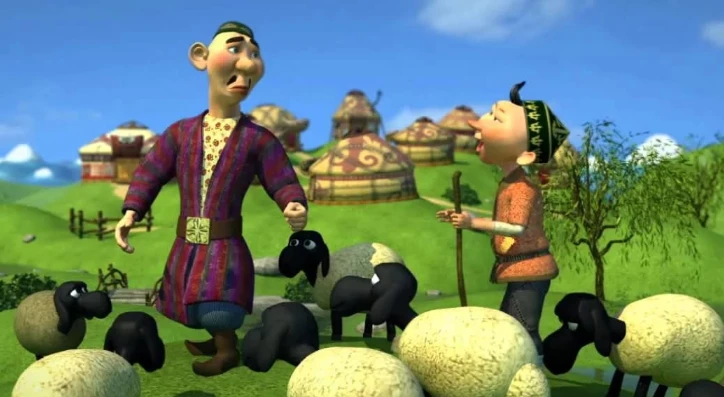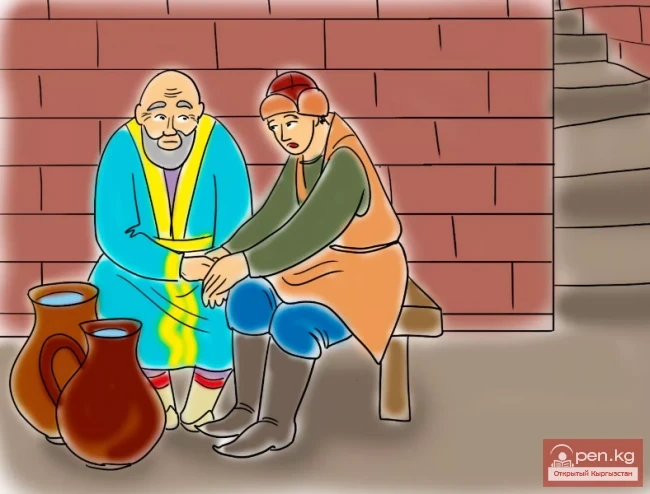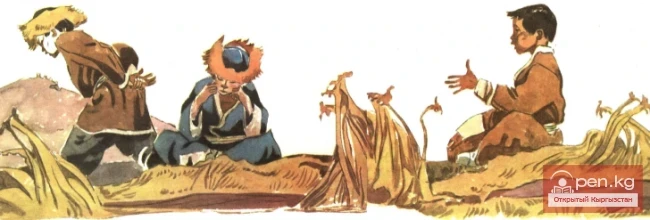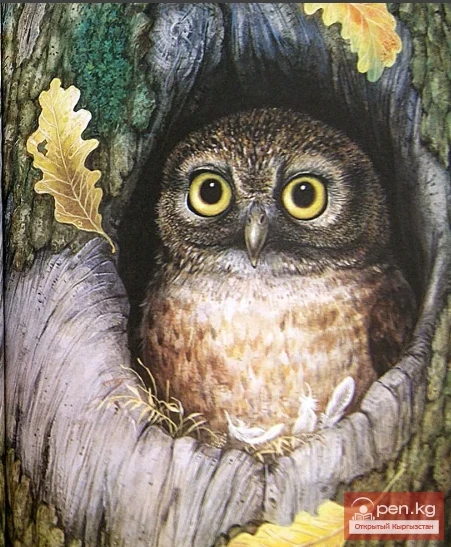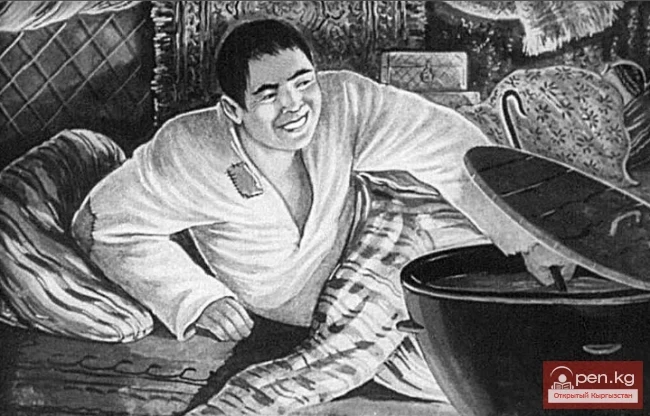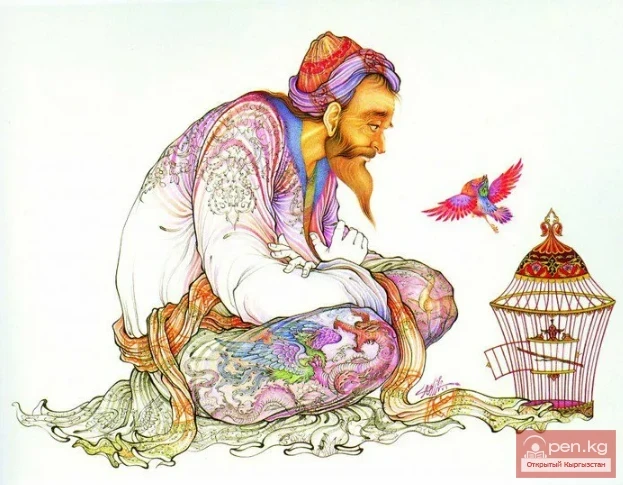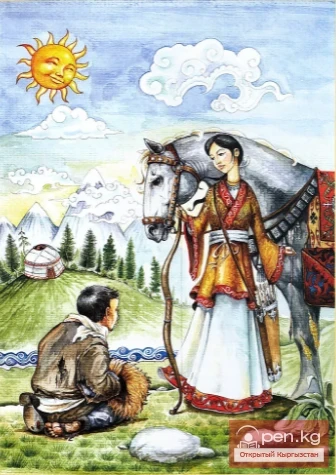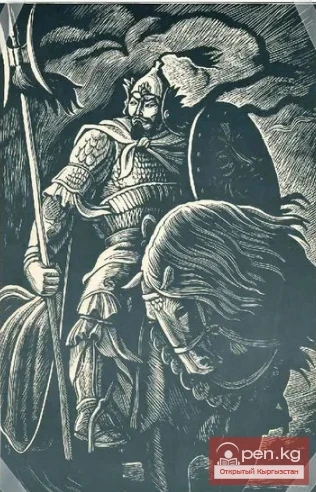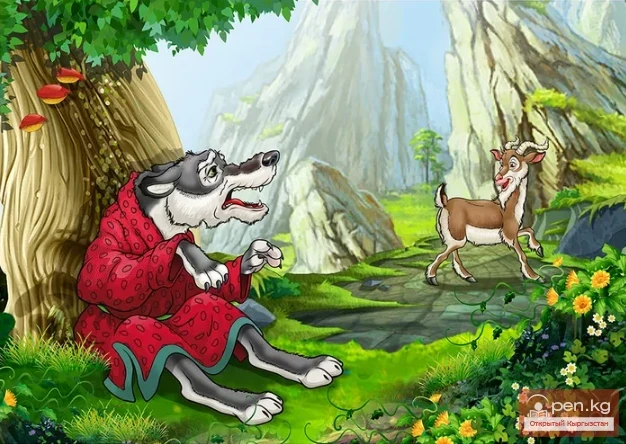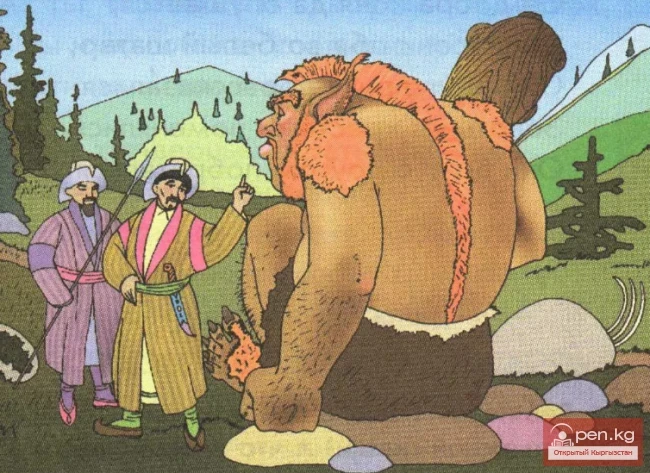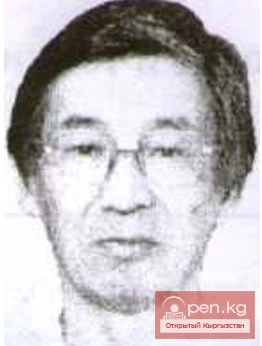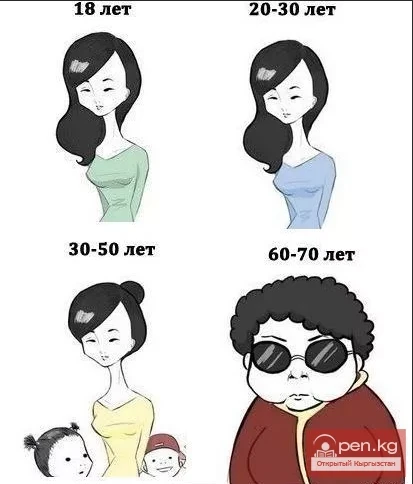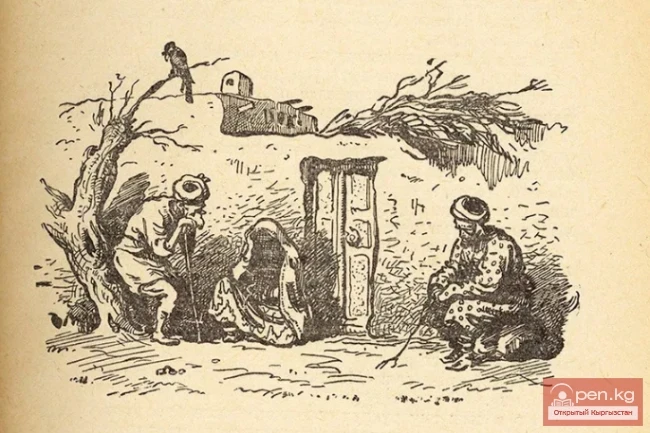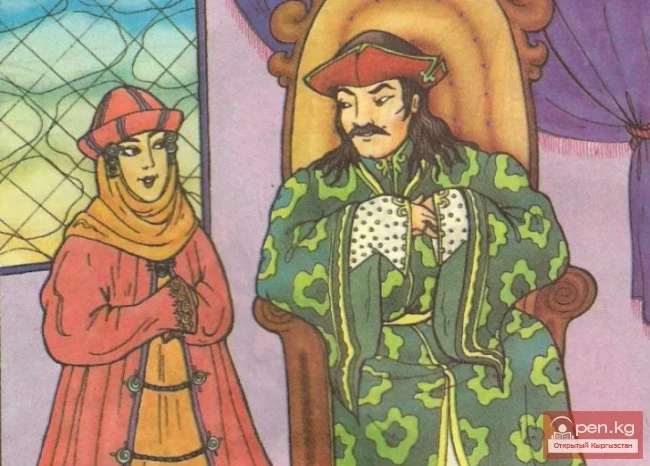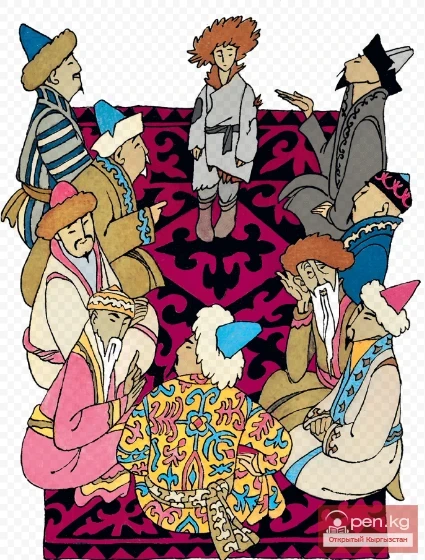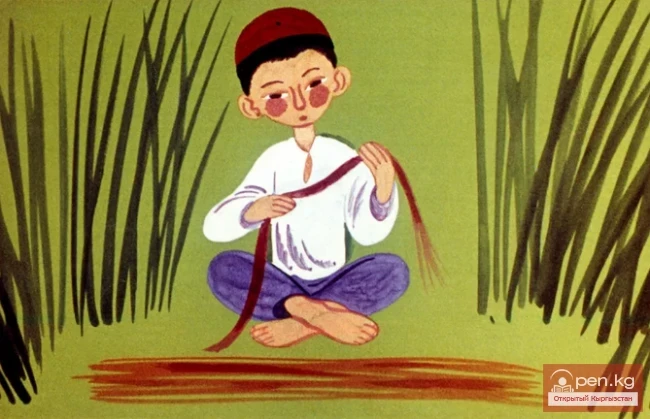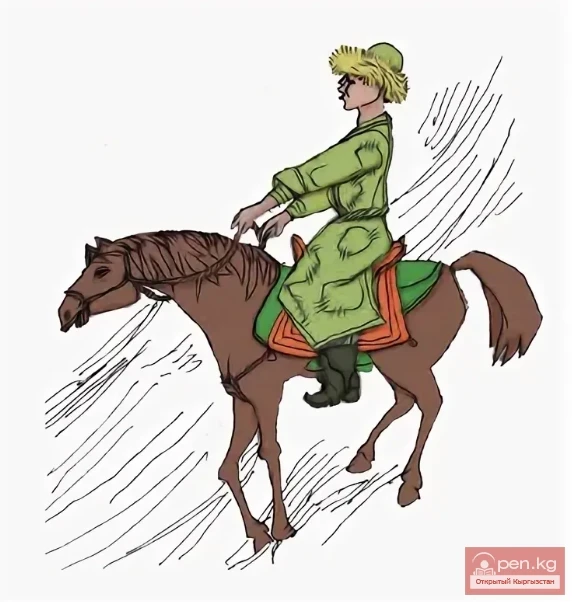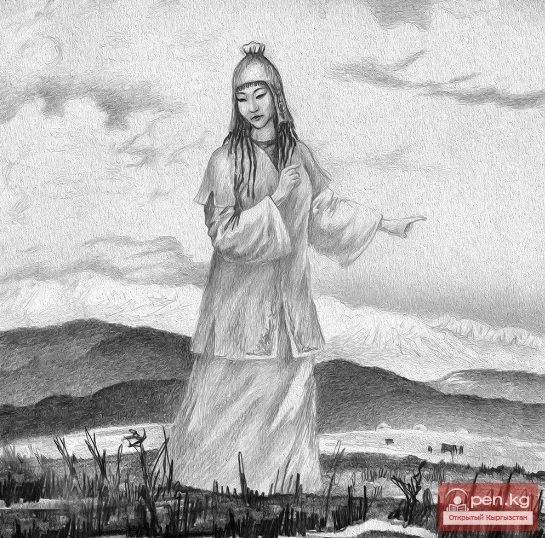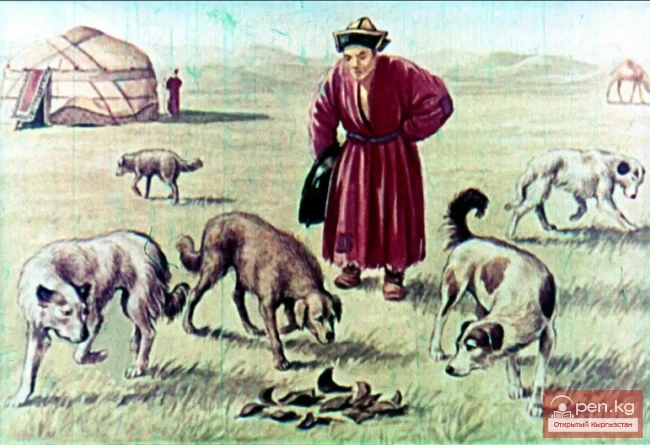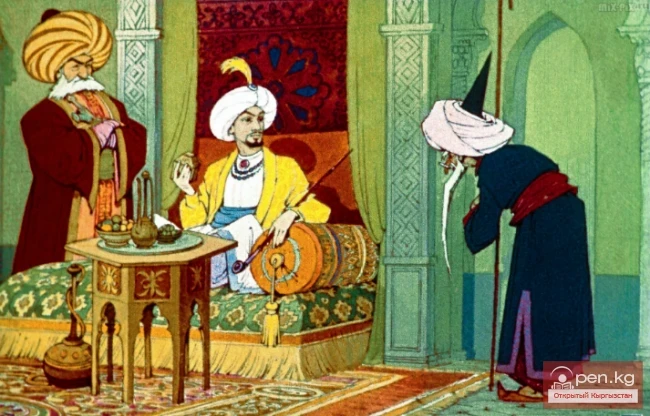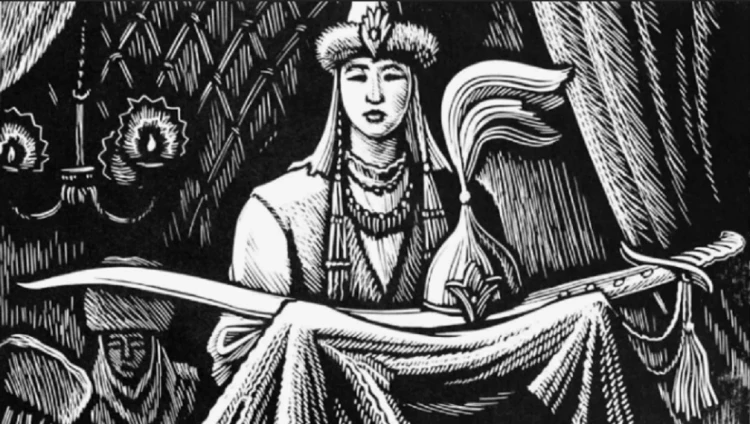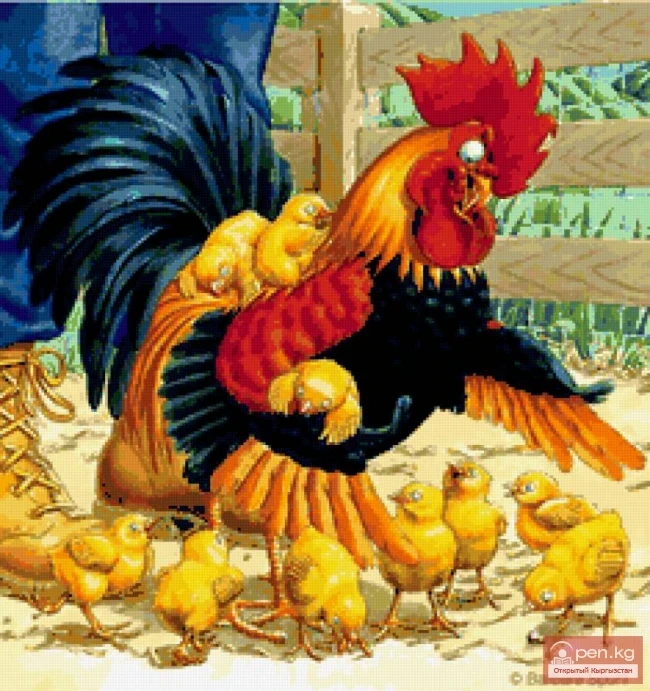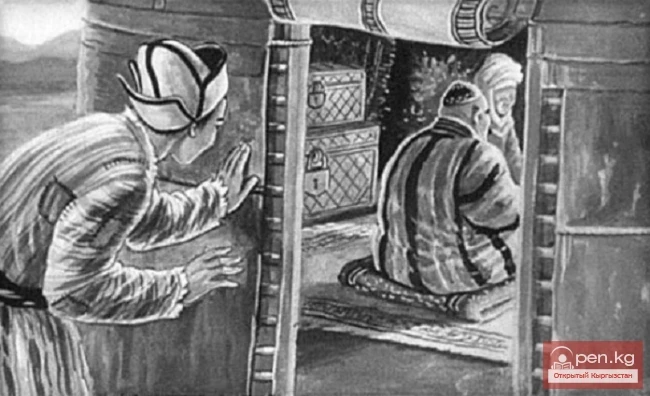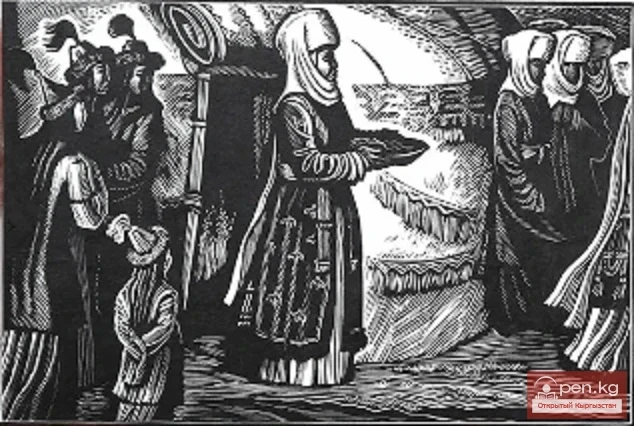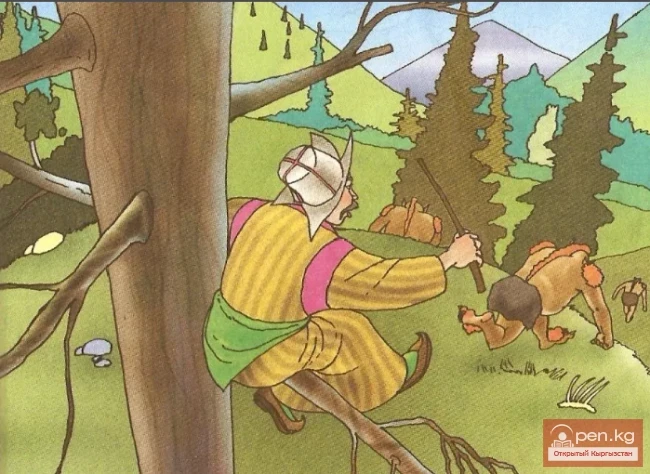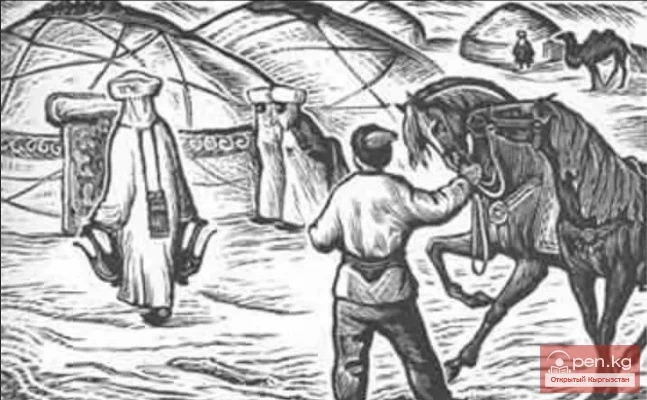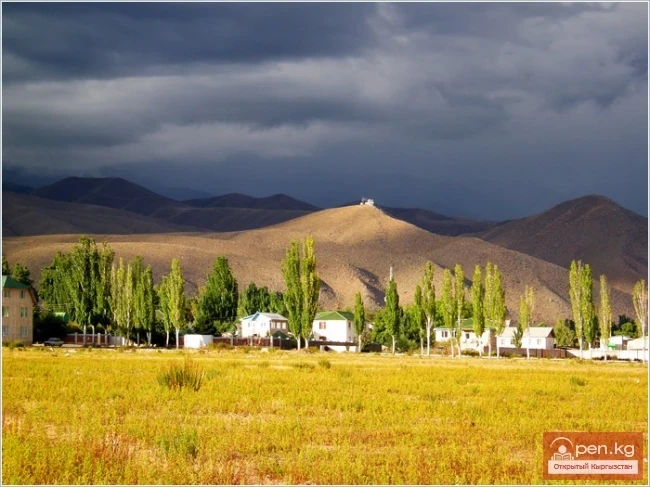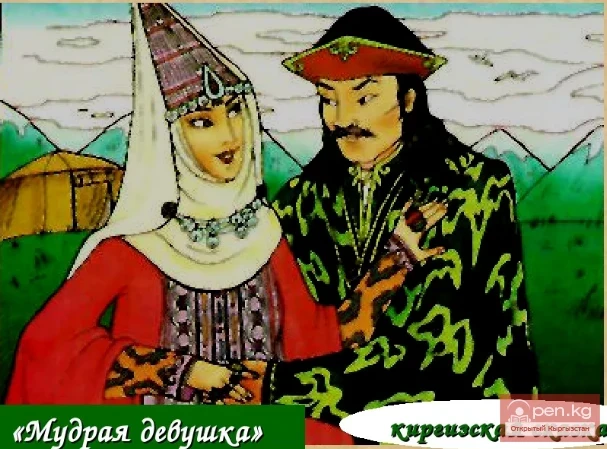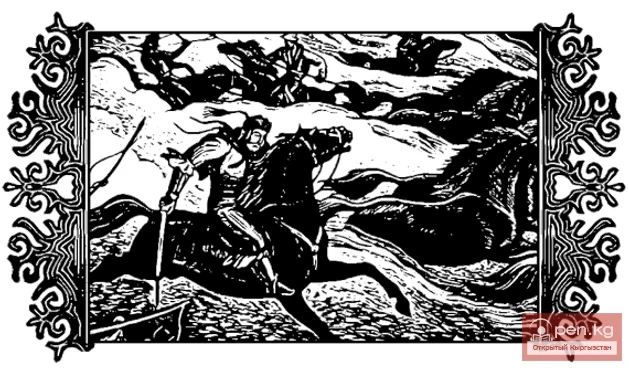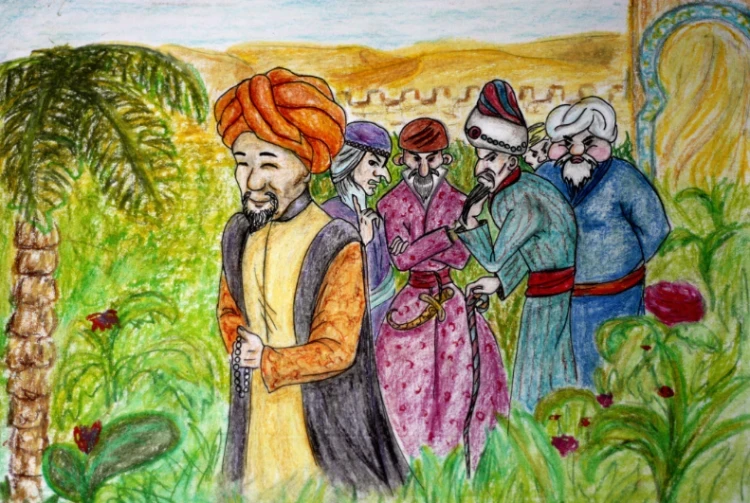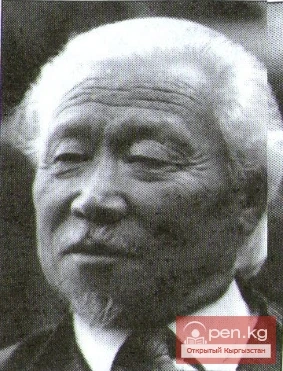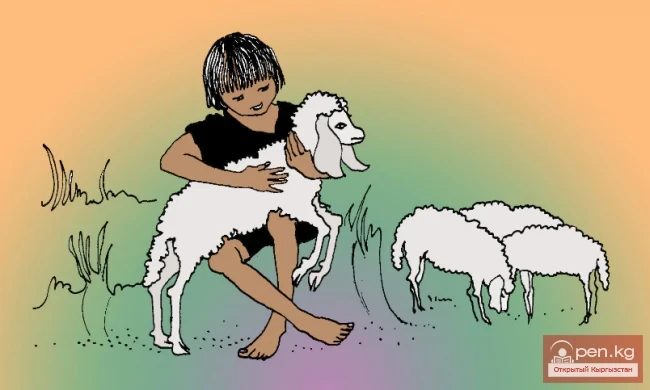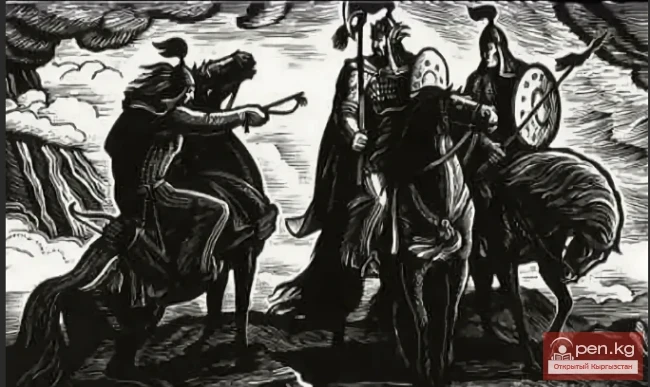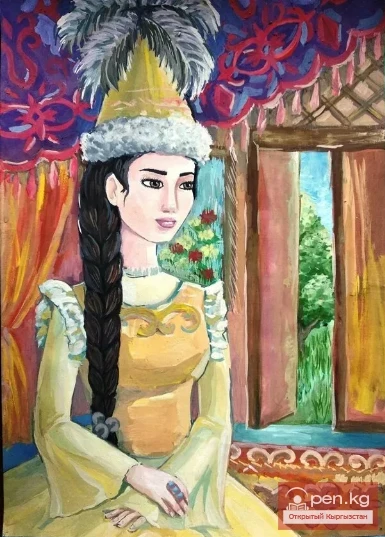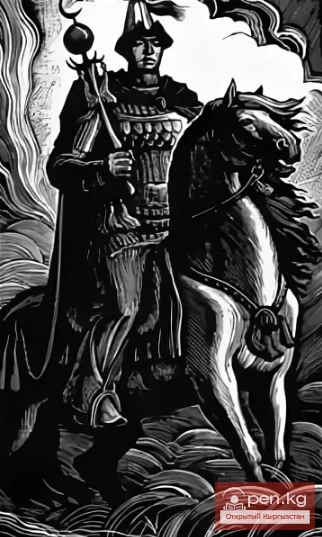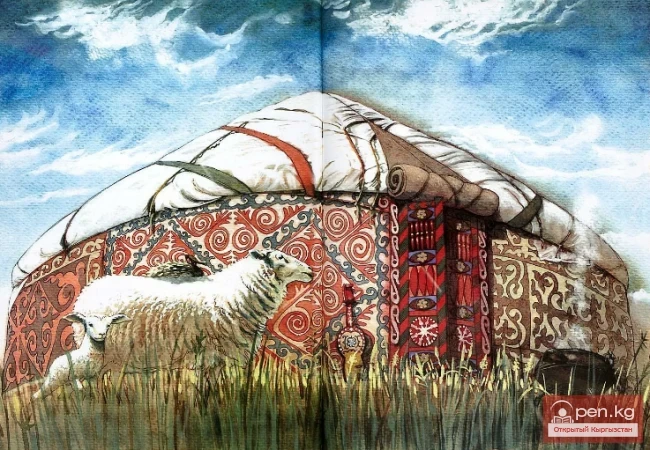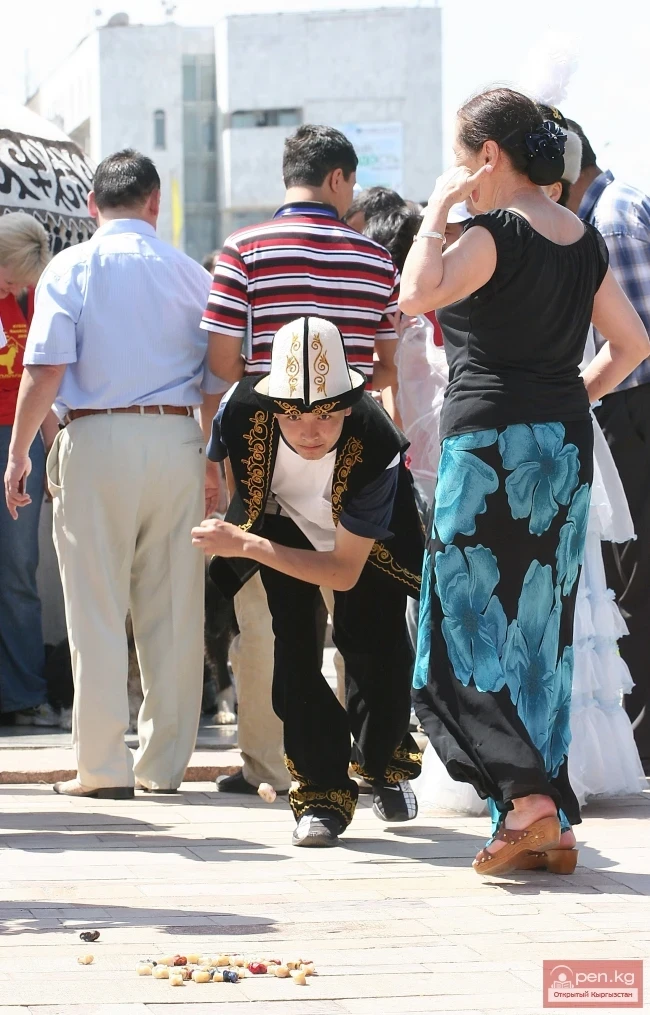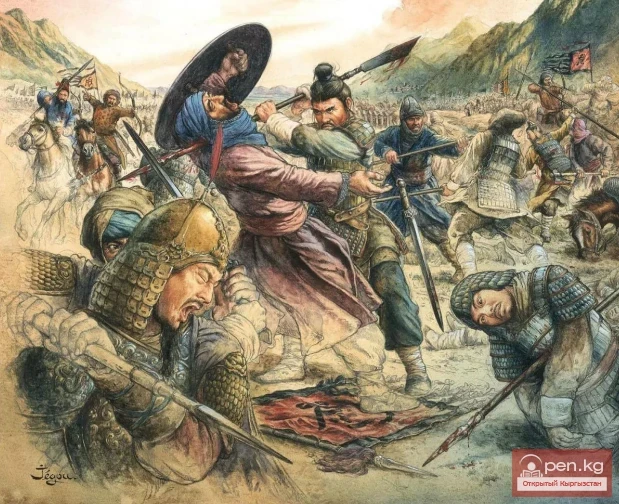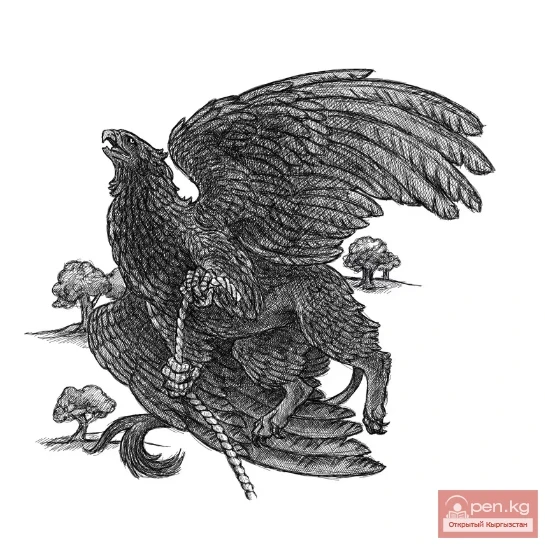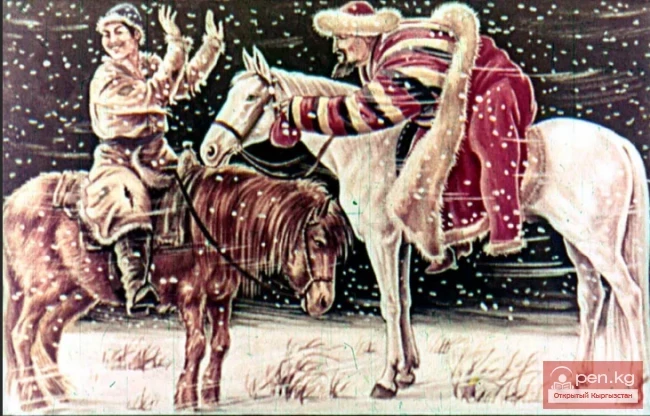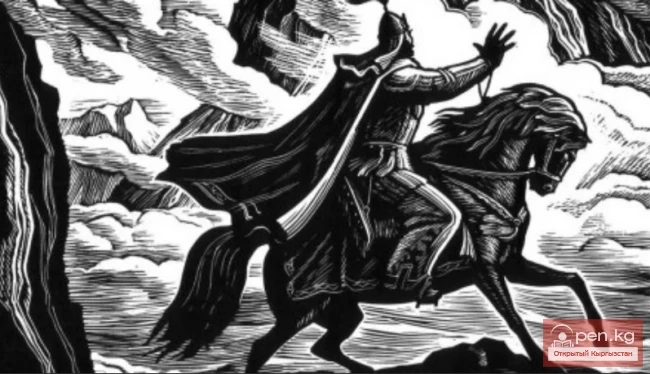The Bald Shepherd
This happened a long time ago. A noble warrior named Sokbay was riding across the steppe when he saw an immense herd of cows in a valley by the river. A bald young shepherd, bold and fierce, was tending the herd. The noble warrior approached the shepherd, greeted him, and asked:
— Whose herd is this?
The shepherd was surprised.
— You look like a noble jigit, yet you cannot guess that such a herd can only belong to a khan, — he replied.
— How do you manage such a huge herd? How do you manage to get them across the river? — Sokbay asked again.
— I say: cross over — they cross; I say: milk them — they get milked; I command the calves to tie themselves — they tie themselves! I have nothing more to say to you, — the shepherd answered boldly.
— Well, if you don’t want to talk, let’s play a game of alchiki for clicks, — suggested the warrior.
— Let’s play, — agreed the shepherd and tossed the alchik, winning immediately.
He clicked Sokbay on the temple with such force that his nail sank to the bone. The warrior got angry, took another alchik, tossed it, won, and said to the shepherd:
— Now I will click you!
The bald shepherd got scared — though he was bold, he was also cowardly! He ran away from Sokbay into the steppe, even forgetting about his cows. He even threw off his rags — apparently, to run faster.
Sokbay laughed at the cowardly shepherd and decided to wait for him to return. But as the sun was setting, the bald shepherd still did not return to his herd.
“What if I have to answer to the khan for this bold shepherd — he might think I killed him,” — the warrior became worried. Then he whispered some words into his horse's ear. The horse turned into an alchik.
Sokbay tucked the alchik under his cloak, put on the shepherd's rags, and drove the herd to the river. The cows were stubborn, refusing to enter the water. The warrior got angry and began to throw them one by one across to the opposite bank. The khan's daughters, who were standing on top of a hill, saw this. The jigit threw all the cows across, stepped over the river, and drove the cows further. When he approached the hill, the girls asked him:
— Why did you throw the cows?
— I forgot the word that needs to be said, and without that word, the cows did not want to enter the water. I got angry and threw them across myself, — Sokbay explained humbly, as a shepherd should.
But the youngest daughter of the khan, Aksuek, guessed that this was no ordinary shepherd. “Our bald shepherd couldn’t even manage a foal, yet this one handled so many cows,” — she thought.
The khan and khanuma noticed nothing. The khanuma gave the warrior a bowl of sour milk, gave him a dry flatbread, and told him to lie down and sleep. The warrior ate, drank, and lay down to sleep right on the ground, not far from the khan's yurt. In the middle of the night, Aksuek woke up, quietly got out of bed, left the yurt, approached the sleeping Sokbay, and took off his hat.
She saw his wide forehead, thick black hair, and realized that he was not a shepherd, but some noble jigit.
In the morning, the khan went for a walk and sat down to rest on a small hill. His youngest daughter Aksuek approached him, laid three scarves before him, and silently left.
— Why did she spread out the scarves? the khan asked his wife in surprise.
— She wanted to tell you to marry off your daughters, — replied his wife.
The khan called all three of his daughters, gave each an apple, and said:
— Now I will command all my subjects to pass by us. Let each of you throw an apple at the one you want to name as your betrothed.
The subjects began to pass by the khan and his daughters, and the eldest daughter threw her apple at the jigit named Kanbacha.
The middle daughter threw her apple at the jigit named Bekbacha. The youngest did not throw at anyone.
— Let those who have not yet passed by come, father, — she said.
— Only the bald shepherd is left. He has no business here, — the people murmured.
— Everyone must pass. Let the bald one pass too, — the khan graciously allowed.
They seated the shepherd on a broken nag, led him past the khan, and the youngest daughter took and threw an apple at the young man.
— What a shame! What a disgrace! — the people murmured. — The khan's daughter Aksuek preferred the shepherd to all the jigits!
Even the khan himself did not like that Aksuek chose the bald shepherd as her husband. But there was nothing to be done. The khan arranged a grand wedding — all his daughters married their betrothed. One day the khan called his two elder sons-in-law and said:
— I have a mare that gives birth to a piebald foal every year, and every year a huge steppe eagle steals the foal. Go and find the missing foals.
The sons-in-law bowed to their father-in-law, dressed for the journey, and left.
— Go tell my father that I will also go searching, — Sokbay said to his wife Aksuek.
Aksuek told her mother about her husband's desire. The mother conveyed this to the khan. The khan replied:
— He has no business there, let him tend the cows.
— Honor the bad son-in-law, and you will honor the good daughter, — his wife retorted.
— Fine, let him go, but I will not give him a horse. Let him take a bull. If he wants, he can ride the bull, — the khan replied disdainfully. — And if he does not find the foals, I will have him executed!
The mother conveyed the father's decision to her daughter, and the saddened daughter said to her husband:
— Father does not give you a horse, he orders you to ride a bull.
The husband said not a word, went to the herd, chose a bull, and set off. After riding for a while, he took out his magical alchik from his pocket, turned it back into a horse, mounted it, and sped ahead. He tied the bull and let it graze in the steppe. One day he caught up with Kanbacha and Bekbacha, who had been traveling for forty days. On the forty-first day, they all stopped to rest. The sons-in-law slept the night, and in the morning Sokbay went hunting, killed a goat, skinned it, and prepared lunch. The two elder sons-in-law returned from the hunt, but they brought no game with them and began to ask the youngest son-in-law for a piece of meat,
— Fine, I will give you as much meat as you want, but for this, I will put my tamga — a brand on your heels, — said Sokbay.
Kanbacha and Bekbacha were hungry and agreed; Sokbay branded both of them and gave them meat. After eating his fill, he climbed to the top of a high mountain and from there spotted the missing foals. They were grazing right at the foot of this high mountain. Sokbay descended from the mountain and drove all the foals back. The elder sons-in-law envied the younger one's luck and decided to get rid of him. They grabbed him and threw him into a deep abyss, while they drove the foals to the khan.
Kanbacha and Bekbacha left, and Sokbay began to call his faithful steed.
The horse approached the edge of the abyss, and the jigit said to him:
— Not far from here lives a bai. He has a daughter whose braids are forty arkan long. Bring me this girl.
The horse ran to the bai's yurt, began to walk in front of it, nibbling the green grass. The bai's daughter saw the horse and began to ask her father:
— Father, catch this horse. I want to ride it!
The father caught the horse. The girl got on it and began to ride around the yurt. At first, the horse obediently carried the girl, but then it galloped away into the mountains and brought her to the edge of the abyss. Sokbay shouted from the bottom of the abyss:
— Lower your braids, I will climb up them.
The girl lowered her braids, but she did not have the strength to pull the jigit up. The horse helped her. The jigit thanked the girl, took her back to her father, and rode home. But, not reaching the aiyl, he got off the horse, turned it back into a magical alchik, and tucked it under his cloak. He mounted the bull and presented himself before the khan in this form.
— Where are the foals? — the khan pounced on him. — I will have you executed right now!
— Let me first say a few words, and then you can execute me! — Sokbay said.
— Speak! — the khan allowed.
— I went to the mountains. In the mountains, I killed a goat. Kanbacha and Bekbacha came to me. They asked me to feed them meat. I promised to give them meat, but first, I branded their heels with my tamga. Then I fed them and set off in search of the foals. Soon I found the foals. Your elder sons-in-law envied me and threw me into the abyss. I told you the truth, khan, and if you don’t believe me, command the sons-in-law to show their heels.
The sons-in-law had to show their heels, and everyone saw the brand that Sokbay had placed. And the khan was convinced of the truthfulness of his younger son-in-law's words. He did not execute him. Then Sokbay told the khan that he was not a shepherd, but a noble warrior. Soon the khan grew old, and Sokbay-batyr began to rule his khanate.
Kyrgyz Tales
